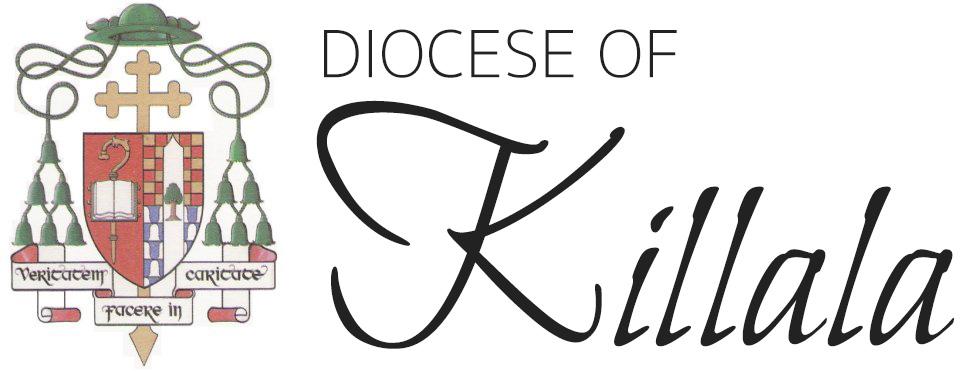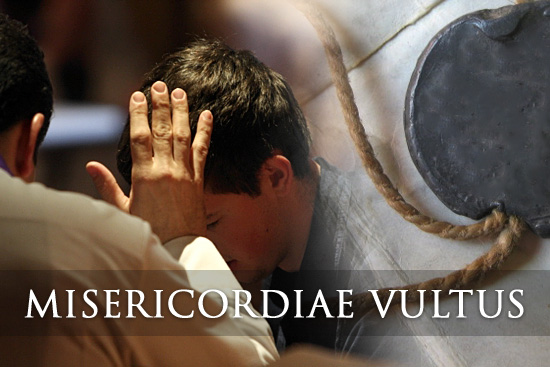Pope Francis has announced an Extraordinary Jubilee of Mercy in the Universal Church. This Holy Year of Mercy will begin on 8 December to commemorate both the Feast of the Immaculate Conception and the 50th anniversary of the closing of the Second Vatican Council, which called the Church to proclaim the Gospel to the world in new ways, bringing God’s mercy to everyone. The Year will conclude on 20 November 2016.
In a specially written prayer for the Year of Mercy, the Holy Father entreats the Lord to make the Jubilee of Mercy a year of grace so that the Church, “with renewed enthusiasm, may bring good news to the poor, proclaim liberty to captives and the oppressed, and restore sight to the blind.” The text of the prayer follows:
Pope Francis’ Prayer for the Year of Mercy
Lord Jesus Christ,
you have taught us to be merciful like the heavenly Father,
and have told us that whoever sees you sees Him.
Show us your face and we will be saved.
Your loving gaze freed Zacchaeus and Matthew from being enslaved by money;
the adulteress and Magdalene from seeking happiness only in created things;
made Peter weep after his betrayal,
and assured Paradise to the repentant thief.
Let us hear, as if addressed to each one of us, the words that you spoke to the Samaritan woman:
“If you knew the gift of God!”
You are the visible face of the invisible Father,
of the God who manifests his power above all by forgiveness and mercy:
let the Church be your visible face in the world, its Lord risen and glorified.
You willed that your ministers would also be clothed in weakness
in order that they may feel compassion for those in ignorance and error:
let everyone who approaches them feel sought after, loved, and forgiven by God.
Send your Spirit and consecrate every one of us with its anointing,
so that the Jubilee of Mercy may be a year of grace from the Lord,
and your Church, with renewed enthusiasm, may bring good news to the poor,
proclaim liberty to captives and the oppressed,
and restore sight to the blind.
We ask this through the intercession of Mary, Mother of Mercy,
you who live and reign with the Father and the Holy Spirit for ever and ever.
Amen.
Misericordiae Vultus – The Face of Mercy
The bull is the fundamental document for the Holy Year that outlines the overall spirit and intentions for the Jubilee, as well as the spiritual fruits that are hoped for. The 28-page bull, titled “Misericordiae Vultus” or “The Face of Mercy” opens with the declaration, “Jesus is the face of the Father’s mercy. These words might well sum up the mystery of the Christian faith.”
In the document, Pope Francis says the Holy Year is “dedicated to living out in our daily lives the mercy” which God “constantly extends to all of us.” He explains the year will begin on 8 December to commemorate both the feast of the Immaculate Conception and the 50th anniversary of the closing of the Second Vatican Council, which called the Church to proclaim the Gospel to the world in new ways, bringing God’s mercy to everyone.
After the Holy Door of St Peter’s is open on December 8, the Holy Doors of the other papal basilicas will be opened in subsequent days. As well, as a sign of communion of the whole Church, the pope has requested that every diocese in the world open a similar “Door of Mercy” for the local celebrations of the Jubilee.
The document develops three main themes:
First, Pope Francis elaborates the theological understanding of God’s mercy, explaining the role of mercy in the life of people and of the Church, who are both the beneficiaries and the witnesses to God’s mercy in the world.
“The mercy of God is not an abstract idea, but a concrete reality through which he reveals his love as that of a father or a mother, moved to the very depths out of love for their child,” the Pope writes.
“Mercy is the very foundation of the Church’s life,” he continues. “The Church’s very credibility is seen in how she shows merciful and compassionate love.”
He recalls that the motto of the Holy Year is “Merciful like the Father.”
“Wherever the Church is present, the mercy of the Father must be evident,” he writes. “Wherever there are Christians, everyone should find an oasis of mercy.”
As a second theme, the Pope offers practical ways to live well the Holy Year: go on pilgrimage as an “impetus to conversion”; do not judge or condemn but forgive and give, avoiding gossip, envy and jealousy; have a heart open to the fringes of society and bring consolation, mercy and solidarity to people who live in precarious situations; take up the corporal and spiritual acts of mercy with joy; and observe the “24 Hours for the Lord” initiative, which encourages prayer and the sacrament of reconciliation, in every diocese during Lent.
He also addresses confessors, encouraging them to be “authentic signs of the Father’s mercy.” And, during Lent of the Holy Year, the Pope says he will send out “Missionaries of Mercy”–priests to whom he will grant “the authority to pardon even those sins reserved to the Holy See.” They will be “living signs of the Father’s readiness to welcome those in search of his pardon,” he writes.
As a third theme, the Pope issues particular calls for justice and conversion. He asks members of criminal organizations and those involved in corruption to change their lives and to embrace God’s mercy.
He also notes that both Judaism and Islam “consider mercy to be one of God’s most important attributes.” And he expresses “trust that this Jubilee… will foster an encounter” with these and other religions that will “open us to even more fervent dialogue” toward greater knowledge and understanding, “eliminate every form of closed-mindedness and disrespect and drive out every form of violence and discrimination.”
He also recalls the relationship between justice and mercy as “two dimensions of a single reality that…culminates in the fullness of love.”
“God does not deny justice,” he continues. “He rather envelopes it and surpasses it with an even greater event (mercy) in which we experience love as the foundation of true justice.”
The pope concludes the bull with an invocation to Mary, witness to God’s mercy and recalls saint who dedicated their lives to making God’s mercy known, namely the Polish St Faustina Kowalska.
As with all Jubilees, a plenary indulgence is granted during the Holy Year of Mercy for those who fulfill all of the usual requirements.
To read the Bull of Indiction for the Year of Mercy please click here.

